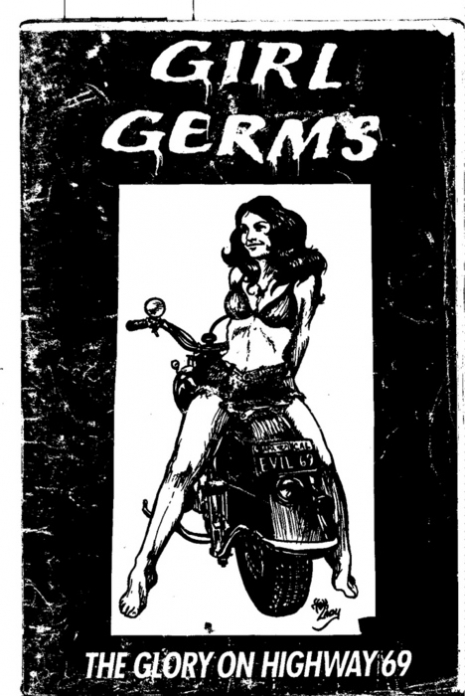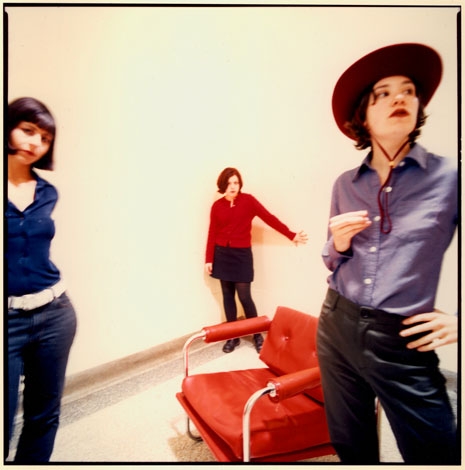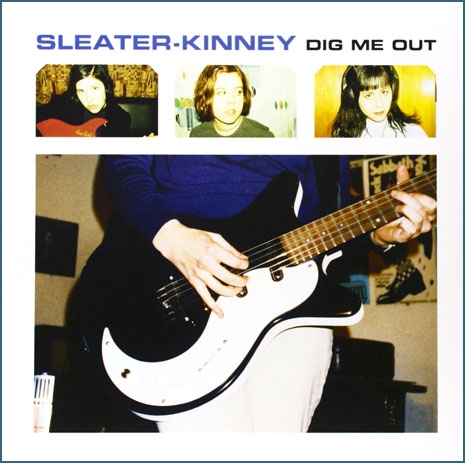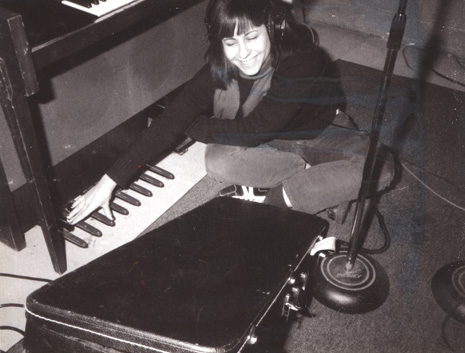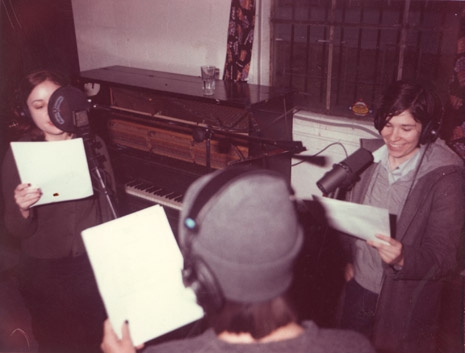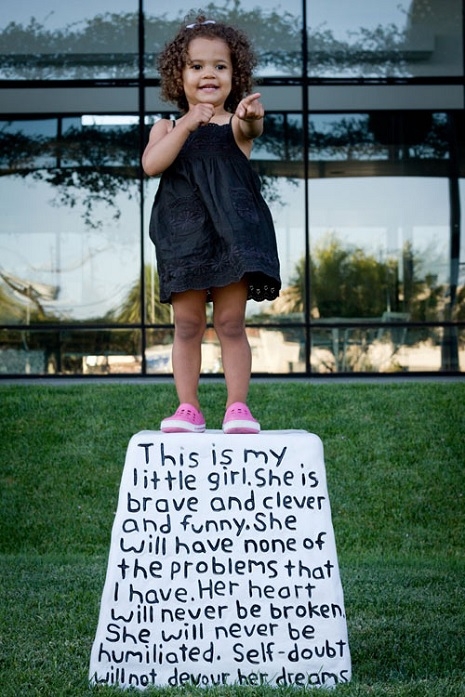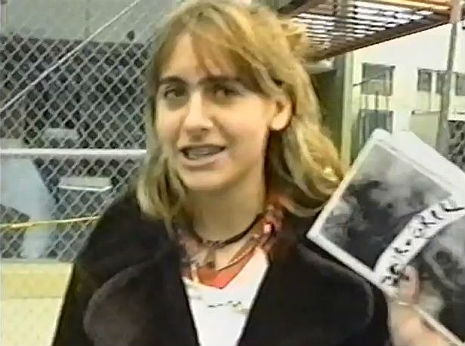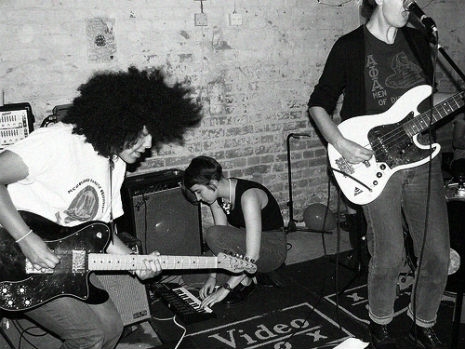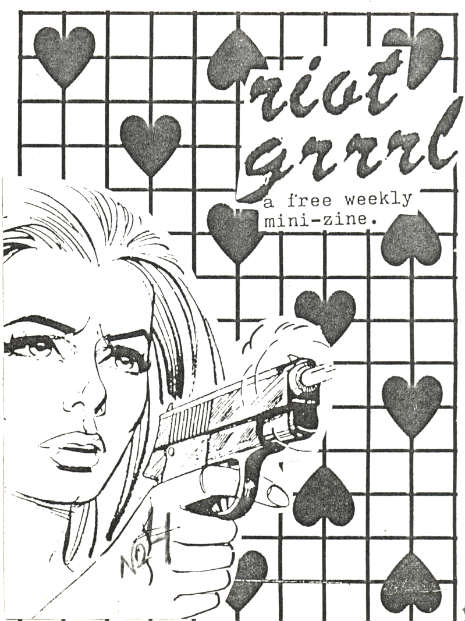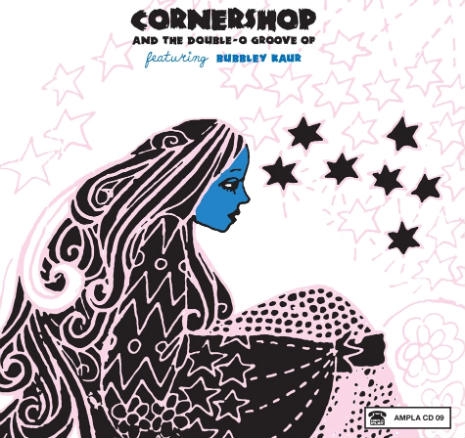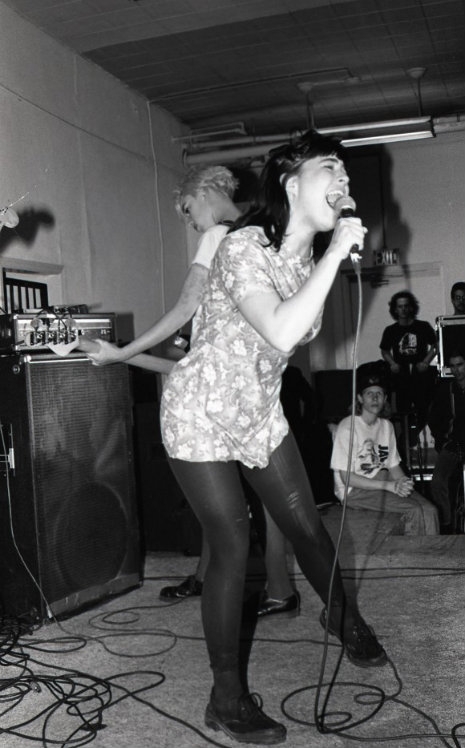
I stumbled across a box of old correspondence recently and found a few forgotten letters from Kathleen Hanna, singer for Bikini Kill, Le Tigre, and The Julie Ruin, from almost two decades ago. I vaguely remember sending her an embarrassing number of interview questions for a fly-by-night zine and, to my shock, she responded. She typed a lot of her answers on an honest-to-God typewriter. Unfortunately the zine stopped being produced and this interview didn’t see the light of day…until now.
Kathleen’s support for aspiring young female writers and musicians cannot be overstated. She was the riot grrrl movement’s big sister, muse, and fairy godmother. Bikini Kill wasn’t exactly raking in a ton of money, but she still bought zines from riot grrrls all over the world.
Not only that, she was amazing at introducing girls and building a support network. She asked me to suss out a nearby midwestern college town’s LGBT community for a dyke friend of hers who was moving there to teach at a small conservative university with no out faculty members or LGBT student organizations whatsoever. How could I say “No” to the amazing Kathleen? I was pregnant, prostrate with endless, debilitating morning sickness, unable to look at a computer screen without throwing up, but you bet your ass I still called around, researched, and compiled twenty pages of notes for her to pass along to her professor friend.
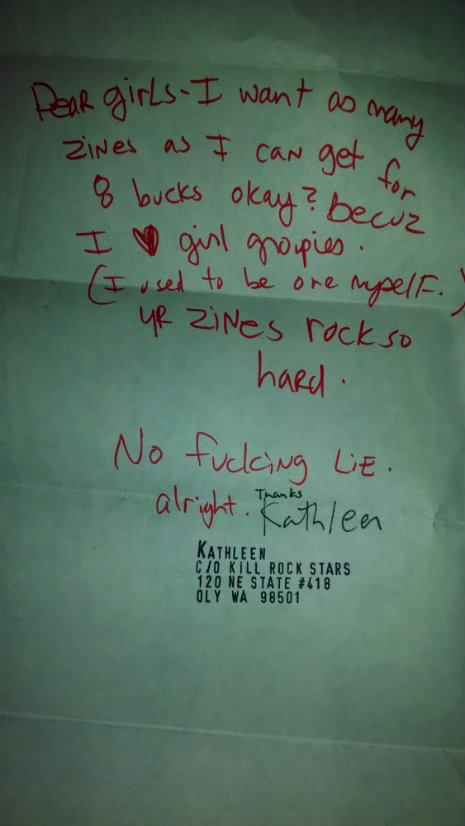
Q: What was the best show you’ve ever played? What was the worst? And why?
Kathleen Hanna: BEST SHOWS ARE ALWAYS IN MINOT because the kids are spazzy and don’t care about cool….also some of our first shows in Olympia meant a lot to me just because we met w/so much opposition and our friends supported us…...oh yeah, our show in Richmond about a year ½ ago where my sister sang rebel girl & demirep with us and when the bass amp broke she did an acapella medley of songs we used to sing a long to (like on the family record player) and it just about broke my heart. My sister is actually an amazing singer and performer, Imean, I always knew she could sing, cuz we learned together by mimicing records, but I didn’t know what a performer she was till that nite.
Q: What was the stupidest remark any music store clerk has ever made to you?
KH: Okay, both these come from the same guy. 1. I was asking if I could sell my fanzine/writing thing and he said he wouldn’t sell it cuz it didn’t have anything to do with music and I should come back after I write something about my groupie experiences or something. 2. After living in the same town for like 7 years and being in tons of bands, putting on shows, putting out writing, etc….the same guy comes up to me when I’m reading a comic book in his store (incidentally he sold the comic book even thouggh IT had nothing [to] do with music) and starts telling me what a great guy the dude who made the comic is and he used to be in this local band blah blah blah, what he didn’t know is I wrote the comic I was looking at and went out with the dude (asshole) he was talking about for like two years. Duh.
Q: Do you think that there are more or fewer young women these days who fall into the “I’m not a feminist, but…” category than there were five years ago? Why?
KH: I really don’t know, I can’t answer that one.
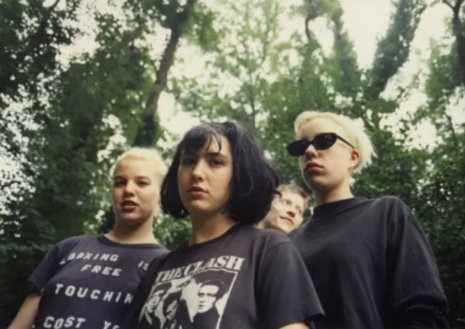
Q: What are your thoughts on the following feminist theorists and writers:
a) Andrea Dworkin
KH: saw her give a lecture. Went up and told her I felt erased by everything she said because I “am a feminist AND a sex worker”. She totally condescended to me and told me i’d pay for what I’d done for the rest of my life. She also lied and said that COYOTE, an organization by and for women who work as prostitutes was not happeneing at all anymore and trashed its founder, Margo St.James, and acted like there were No organizations by and for sex workers in existence (which is and was a total fucking lie) She also believes (or at least she did at this lecture a few years back) that feminists should work with law enforcement agencies which is just fucking stewpid…..and was in support of a bill/legislation (it passed) in WA state that made it so all sex workers (dancers/models/and other legal sex work situations and women who’d been arrested for prostitution) have to register with the police and pay a $75 dollar liscensing fee(obviously this is for legal sex professions) and get fingerprinted. THIS IS TOTALLY FUCKED UP AND CLASSIST and bogus because it makes it so poor women have to come up with the same 75 dollars as middle class/rich ones would PLUS if you are in a jam because of domestic violence, or whatever and you need a job that pays cash quick, like dancing, say but they make you pay this fee…I mean, who can afford it. I could go on and on. My main problem is that she thinks she can speak for all of us (sex workers and women in general) and she can’t. She’s also totally mean. BUT some of her writing is interesting even though shes full of shit.
b) Germaine Greer
KH: I know about her but am not really familiar with her work.
c) Susan Faludi
KH: I liked backlash, it was sorta like pulp novel reading for feminist theory heads and seemed good, just in general, but I already knew sexism existed.
d) Mary Daly
KH: Shes like an ecofeminist and that shit scares me. I’m sure I’ll read her someday but I really hate the idea that women are more nurturing/close to the earth than men or something…...I think its stewpid and strategically flawed.
e) Naomi Wolf
KH: I read The Beauty Myth, and while it was interesting on some levels, like the idea of beauty being “the third shift” for women, I hated how she kept playing white women against Men and Women of Color, like how she’d be all like (this is not a direct quote) “No employer would expect an African American to do blah blah blah, so why do they expect women to do blah blah blah…” I mean, that shits just stewpid cuz Naomi Wolf doesn’t know jack about whatever any individual African American male OR female has to deal with in terms of employment, and also she would act like all women are white over and over and over and, well, it just so annoying and dumb that I stopped reading it, so whatever.
f) bell hooks
KH: I think bell hooks is one of the most important and creative scholars around. I’ve read almost all her stuff and cant wait till she puts out some fiction ( maybe she has and I don’t know?) Anyways, yeah, I could go on and on. I like studying her writing style because it seems really fluid and effortless even though she is explaining very difficult/complex ideas that are operating on several different levels, usually in a way that both academics and non-academics can understand.
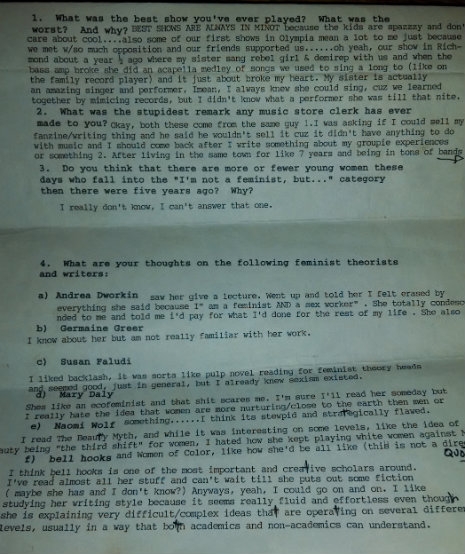
Q: What do you think of the anti-feminist writers such as Christina Hoff Sommers and Paglia?
KH: I haven’t read them because I don’t feel like it. I have heard stories though and it makes me think that, you know, while some of their ideas maybe interesting, MEN tend to tokenize any woman who says anything that sounds at all, even remotely anti-feminist, and then this whole duality thing starts happening where no one really pays attention to their work anymore. Men just use Them to make women who disagree with them feel like shit…….and then certain feminists dismiss them altogether as male identified. Actually, I think that whole phenomenon is probably more interesting then some of these ladies ideas, but I don’t know, like I said I haven’t read them. I’d like to see more writing by feminists about Tokenization, specifically how it functions in different feminist contexts.
Q: What is your opinion of misogynist FEMALE musicians who insist on bashing other women and not supporting them?
KH: Courtney is boring. I am not interested in her.
Q: What is your favorite piece of musical equipment?
KH: My mouth.
Q: Last two books read?
KH: BE MY BABY by Ronnie Spector. Baudellair Live, Interviews with Baud. edited by Mike Gane
More delightfully outspoken opinions from Hanna, including what rock star might be a candidate for getting “beaten senseless with a brick” after the jump…..

